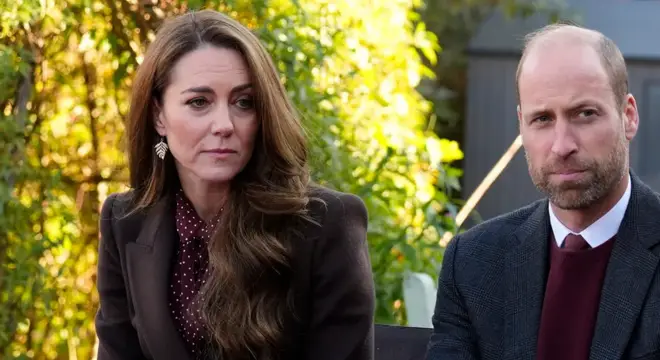Ant Middleton’s Home Sale Sparks Questions About Celebrity Financial Struggles
You know Ant Middleton, right? The tough-as-nails ex-SAS guy who turned into a TV icon with SAS: Who Dares Wins. To most of us, he looked like the kind of man who had it all figured out — fame, fortune, family. But behind those perfectly edited Instagram reels and high-octane TV stunts, something was quietly falling apart.
This week, he sold his Essex family home for £1.35 million. That sounds like a win — until you realise the reason: mounting financial pressure, a tax bill that crossed the £1 million mark, and a looming bankruptcy threat.
It’s the kind of story we see too often: public success, private chaos. And honestly, it hits different when it’s someone like Ant — the guy who once preached resilience and control is now facing the exact opposite in his personal life.
He’s not alone. In an era where public image is everything, financial stress still cuts through quietly. And when you’re a high-profile figure like him, the fall isn’t just hard — it’s very, very public.
So what really happened here? Why did someone who seemed to be on top of the world end up selling his home to stay afloat? And what can you and I learn from it — about money, fame, and the cost of trying to keep up the image?
Let’s break it down.
The Lavish Essex Property – A Glimpse into Middleton’s Family Home
Ant Middleton’s Essex home wasn’t just a property—it was his anchor. Bought during the height of his career, the five-bedroom house sat behind private gates in a quiet, upscale neighbourhood. Spacious, modern, and family-ready, it was the kind of place that made a statement: I’ve made it.
The house was listed for around £1.35 million and, according to reports from The Sun and estate agent data, it sold at asking price. That alone tells you it wasn’t a desperate fire sale. It was strategic—but it was also necessary.
This was the same home where Middleton filmed Insta videos with his kids, prepped for his SAS gigs, and hosted friends. From the granite countertops to the pristine garden, everything about it said “stability.” But under the surface, things were anything but.
Why does this matter? Because this home was the first domino. It shows just how real the pressure had become. When public figures start selling personal assets—especially the home they live in with their kids—it’s rarely just about cashing out. It’s about survival.
This wasn’t about upgrading or downsizing. This was about covering liabilities, fast.
Unraveling the Financial Strain – From Business Debts to Bankruptcy Threats

The cracks started to show long before the sale sign went up.
Ant Middleton had built a brand on strength, leadership, and control—but behind that brand, his finances were in freefall. According to reports from BBC, he owed over £1 million in unpaid tax. And that wasn’t just a small oversight—it was the result of years of mismanagement tied to his company, SS Capital Limited, which was officially shut down with debts piling up.
Then came the bigger blow: HMRC banned him from being a company director for five years. That’s not just a slap on the wrist—it’s a legal red flag. It means Middleton can’t legally run or manage any business in the UK until the ban lifts. That kind of ban doesn’t happen overnight—it’s the result of serious financial negligence.
You might wonder: how does someone earning millions from books, TV, and speaking tours land in this mess?
Truth is, this isn’t uncommon. High earners often underestimate how fast unpaid tax and over-leveraging can spiral. For Ant, the lifestyle, the brand deals, the public image—they came with costs that were being pushed off year after year. And when the taxman finally caught up, the hole was too deep to climb out of without sacrificing major assets.
This section matters because it tells the real story—the one not edited for Instagram. It’s about how fast success can crumble if the back end isn’t handled right. And it’s a reminder that even the toughest faces can crack under financial pressure.
The Taxman Cometh – Middleton’s £1M+ Tax Liabilities and Director Ban
Once the headlines dropped about Ant Middleton owing over £1 million to HMRC, it wasn’t just gossip—it was a legal storm in motion.
HMRC doesn’t go public with these cases unless things are serious. In Ant’s case, the director disqualification wasn’t optional—it was court-ordered. He was officially banned from running or managing any UK company for five years, which is one of the strongest penalties under the UK’s Company Directors Disqualification Act. That’s not something that happens over a small mistake—it means there was repeated failure to meet tax obligations and legal duties.
This isn’t about shame. It’s about accountability. And what it really highlights is this: success doesn’t protect you from the system. Whether you’re a celebrity or a startup owner, ignoring the back-end admin—especially taxes—comes with a cost.
Middleton’s former company, SS Capital, owed £1,041,508 in total, including VAT and PAYE contributions. That’s not just personal spending gone wrong—that’s business obligations, salaries, national insurance. People depending on him. Systems he failed to maintain.
And for the reader, here’s why this matters: it’s a wake-up call. Financial literacy isn’t just for accountants—it’s survival. Even if you’re earning big, if your company’s books are messy, the whole thing can collapse overnight.
It’s one thing to lose money. It’s another to lose legal standing to operate a business. Ant lost both—and that’s when things really started to spiral.
Life After the UK – Relocation to Dubai and Career Moves in Australia
When the pressure peaked, Ant Middleton didn’t just sell his house—he left the country.
Shortly after the sale of his Essex home, Ant relocated to Dubai, citing a need for a fresh start and better opportunities. On Instagram, he framed it as a lifestyle choice: “fresh energy, new mindset, sun, sand, success.” But let’s be honest—the move came right after the tax issues, company collapse, and UK director ban.
It wasn’t just about weather. It was about reinvention.
Dubai has no income tax, no capital gains tax, and a booming expat culture—especially for British entrepreneurs and media personalities trying to reset their careers. For someone in Ant’s situation, it’s not just appealing—it’s strategic.
But he didn’t stop there. In Australia, Ant’s career found a second wind. His role on SAS Australia gave him a platform that didn’t carry the baggage of UK controversies. The show has done well, and he remains a key figure in the franchise. Down Under, his brand of tough-love, military grit still sells.
This section matters because it shows that falling down isn’t the end—how you rebuild matters more. Ant’s pivot wasn’t just physical—it was professional and emotional. He walked away from a collapsing brand in the UK and rebuilt it where he still had trust.
There’s a takeaway here: if the doors close in one place, you don’t quit—you find a new door.
Stories like the Ant Middleton case may feel distant, but similar family crises—like the Georgia murder-suicide—remind us how financial or emotional pressure can escalate dangerously.
Public Perception and Media Coverage – Navigating the Court of Public Opinion

When someone like Ant Middleton stumbles, it’s not just financial — it’s front-page.
The moment news broke about his tax debts and home sale, tabloids jumped in hard. The Sun, Daily Mail, Mirror, and others ran headlines about bankruptcy threats, “lavish lifestyle,” and legal bans. Some articles were factual, but many added a dramatic edge — focusing more on the fall than the context.
And here’s the thing: in the public eye, it’s rarely just about what you did. It’s about how it looks.
For years, Ant was marketed as the no-nonsense, hyper-disciplined ex-Special Forces guy who didn’t make mistakes. That persona worked on TV. But it also made the backlash harsher. When that kind of figure slips, the media loves the irony. And the public? They’re split — some cheer for a comeback, others point fingers.
Social media made it even louder. Reddit threads questioned his credibility. A few Instagram comments accused him of hypocrisy. But others defended him — pointing out how many celebrities struggle with finances, and praising him for making a clean break instead of hiding.
This section matters because perception shapes reputation—and reputation shapes opportunity. The way Ant’s story was told might impact whether brands work with him, whether fans keep following, and whether his comeback holds.
And for you and me, it’s a reminder: when your brand is built on strength, the world watches closely for weakness.
Lessons Learned – Financial Management and the Celebrity Lifestyle
Let’s be real—Ant Middleton’s story isn’t just about him. It’s a case study in how fast a successful public life can get swallowed by private financial missteps.
From the outside, he had it all: TV shows, book deals, a high-ticket speaking career. But on paper? He was running a company that owed over £1 million, missed tax deadlines, and got him banned from business leadership for five years. That’s not just bad luck—it’s poor financial management behind the scenes.
And it’s not rare. The celebrity world is full of similar stories. Big income leads to big lifestyles… but not always big planning. The problem? Fame creates momentum—and the illusion that it’ll never slow down. That illusion breaks people.
So what’s the real lesson here?
- Earning well isn’t the same as managing money well. You can make millions and still crash if your expenses outpace your planning.
- Brand ≠ business acumen. Being a face of strength on TV doesn’t guarantee you’re handling your books.
- Surrounding yourself with experts matters. Tax advisors, financial planners, legal consultants—ignoring them is what costs people like Ant everything.
For readers like you, this isn’t just celebrity drama. It’s a mirror. Whether you’re building a business, a personal brand, or just climbing your career ladder, your back-end matters as much as your front-facing image.
If someone with Ant’s platform and resources can end up banned from business, imagine how easily it can happen to someone with less reach and support.
Conclusion
Ant Middleton’s journey isn’t a tabloid story—it’s a warning wrapped in reality.
He built a powerful brand around resilience, leadership, and mental toughness. And yet, behind the scenes, he was facing a financial storm big enough to force him out of his home, out of the UK, and out of his business life—at least legally.
But here’s what stands out: he didn’t hide. He sold the house. He moved. He rebuilt in Australia. That takes a different kind of strength—the kind that doesn’t look good on camera but matters more in real life.
The road ahead for Ant Middleton is still uncertain. His career in Australia is holding, and his presence in Dubai suggests he’s trying to future-proof himself in a more flexible financial landscape. But trust, reputation, and long-term recovery take time.
And for you? Whether you’re a fan, a business owner, or someone just navigating modern life—the core takeaway is this:
No matter how strong your brand, no matter how sharp your image, the real test is what happens when things fall apart. How you respond, how you manage, and how you rebuild—that’s where the real credibility lives.
What would you do if your image was strong but your foundation was cracking? Let me know in the comments—this one’s worth a real conversation.


